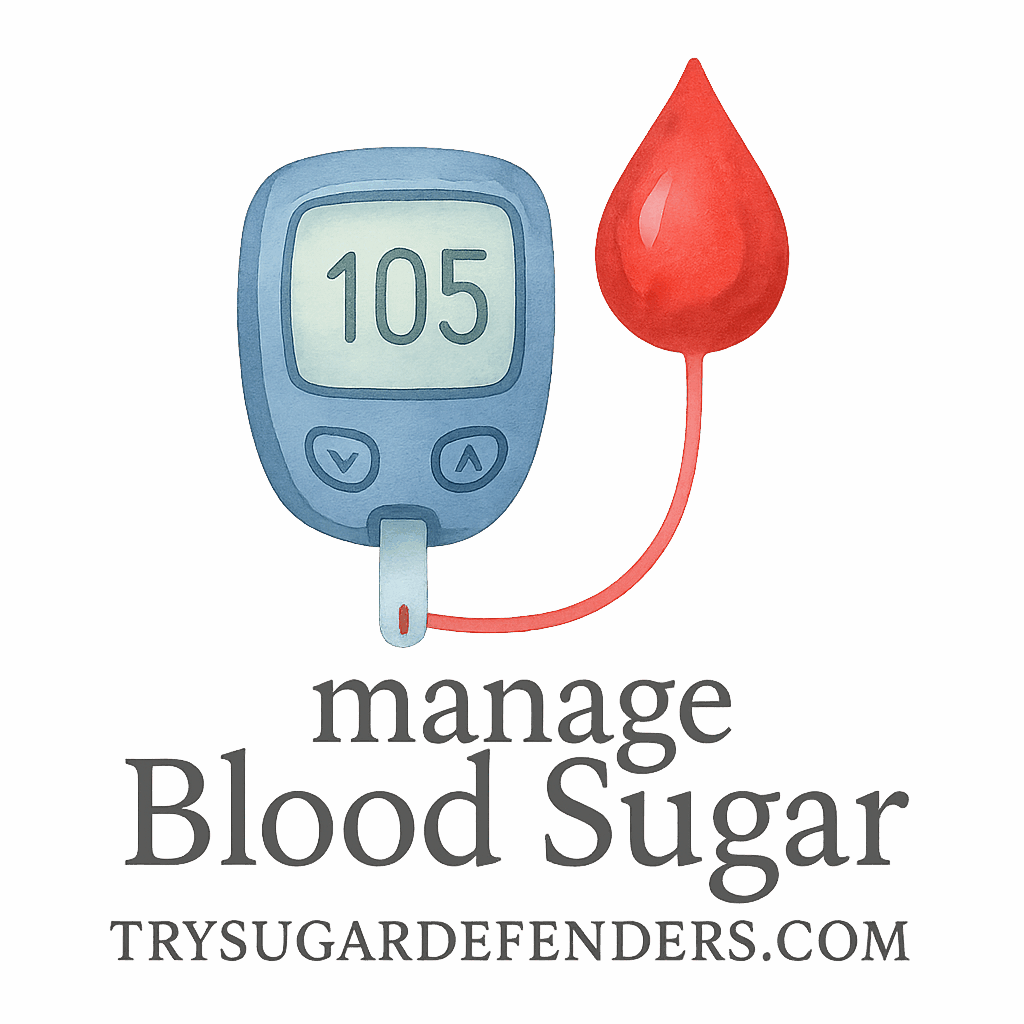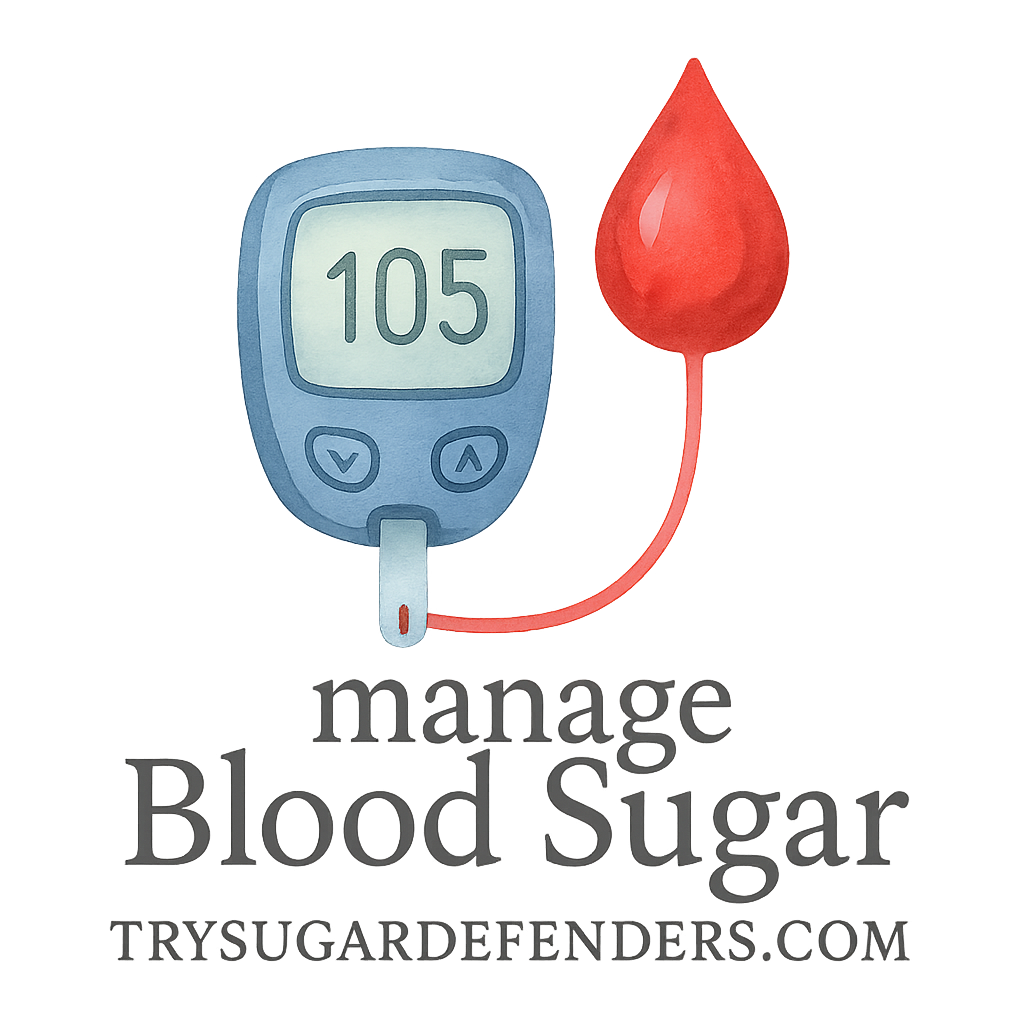Let’s be honest: most of us don’t think about our blood sugar until something starts to feel… off. Maybe you’re thirsty all the time, or maybe you’re constantly drained no matter how much you rest. These subtle symptoms can be your body’s way of waving a red flag.
In this post, we’ll walk you through the 7 warning signs you need medical help with blood sugar—what they mean, why they happen, and when you should absolutely not ignore them. Plus, we’ll talk about what to do next and how to stay on top of your blood sugar health.
Understanding Blood Sugar: Why It Matters
What Is Blood Sugar?
Blood sugar (aka blood glucose) is the sugar that travels through your bloodstream, delivering energy to your cells. It comes from the food you eat—especially carbs—and is controlled by insulin, a hormone produced in the pancreas.
When everything’s working properly, your blood sugar stays in a healthy range. But when things go haywire? That’s when you might experience some pretty alarming symptoms.
Want to learn more about how your diet affects your blood sugar? Check out our in-depth guide on diet and nutrition.
Normal vs. Abnormal Blood Sugar Ranges
- Normal (fasting): 70–99 mg/dL
- Pre-diabetic: 100–125 mg/dL
- Diabetic: 126 mg/dL or higher
Consistently high or low levels can mean trouble.
Why Blood Sugar Levels Can Become Dangerous
Short-Term Risks
Too much sugar in your blood can cause:
- Extreme thirst
- Fatigue
- Ketoacidosis (in severe cases)
Too little sugar (hypoglycemia) can lead to:
- Shakiness
- Confusion
- Fainting or seizures
Long-Term Consequences
Uncontrolled blood sugar can silently damage your organs—heart, kidneys, nerves, and eyes. That’s why early warning signs matter.
1. Frequent Urination and Excessive Thirst
What’s Causing It?
When blood sugar is too high, your kidneys work overtime to get rid of the excess. This results in peeing a lot—and losing fluids means you’re constantly thirsty.
When to Seek Help
If you’re drinking more than usual, waking up at night to urinate, or feeling like no amount of water quenches your thirst, get your blood sugar checked.
Learn about behavioral and mental strategies to stay on top of hydration and sugar intake habits.
2. Unexplained Weight Loss
A Red Flag You Shouldn’t Ignore
Losing weight without trying might sound great… but not when it’s caused by your body breaking down fat and muscle for fuel because it can’t access sugar properly.
How It Relates to Diabetes
It’s a major sign of undiagnosed Type 1 diabetes. If the pounds are falling off with no change in diet or activity, see a doctor right away.

Related tag: blood sugar
3. Fatigue That Won’t Go Away
Not Just “Being Tired”
When your cells don’t get the glucose they need, you feel worn out. This isn’t just needing a nap—it’s dragging through the day no matter what.
The Role of Glucose in Energy
Glucose is fuel. Without it, your body runs on fumes.
Explore exercise and lifestyle tips to boost your energy naturally.
4. Blurred Vision
Why Your Eyes Are Telling You Something
High blood sugar can swell the lens in your eye, making it harder to focus. This can come and go—or get worse over time.
The Dangers of Ignoring It
Ignoring vision changes may lead to permanent damage like diabetic retinopathy.
Tag of interest: devices – technology that helps track blood sugar levels can alert you before serious damage occurs.
5. Slow Healing Wounds and Frequent Infections
The Blood Sugar Connection
High sugar weakens the immune system and damages circulation. Cuts, scrapes, or infections take forever to heal.
What Doctors Look For
Wounds that don’t heal or keep getting infected? That’s a big clue your blood sugar’s out of whack.
Learn more about monitoring and tracking your body’s healing response.
6. Tingling or Numbness in Hands and Feet
Signs of Nerve Damage
This is a symptom of diabetic neuropathy—a complication of long-term high blood sugar. It starts subtly and worsens over time.
Getting Evaluated Early
Catching it early can slow or even prevent further nerve damage.
See: medical supplements that support nerve health and blood sugar control.
7. Mood Swings and Brain Fog
Your Brain Needs Balanced Blood Sugar Too
Ever feel snappy or forgetful after skipping a meal? That’s your brain screaming for glucose. Chronic imbalance can lead to depression, anxiety, and confusion.
Mental Health Impacts
Sugar highs and crashes mess with your neurotransmitters—leading to irritability, sadness, and difficulty focusing.
Explore CBT and mental strategies that help manage mood and blood sugar hand in hand.
What To Do If You Notice These Symptoms
When to See a Doctor
If any of the signs above sound familiar, don’t wait. Schedule a consultation. You may need a fasting blood glucose test, an A1C test, or a glucose tolerance test.
Visit the consultation section to prepare your questions in advance.
Tools to Monitor and Track Your Health
- Blood glucose monitors
- Continuous glucose monitors (CGMs)
- Food and mood journals
- Fitness trackers
These tools are lifesavers when it comes to health management.
Preventing Blood Sugar Emergencies
Smart Lifestyle Choices
You don’t have to wait until you feel awful to act. Prevention is everything. Small habits = big difference.
Diet, Exercise, and Monitoring Tips
- Eat low-glycemic meals
- Walk after eating
- Stay hydrated
- Track your numbers
Check out the comparison of diets and plans that work best.
Conclusion
Your body talks—you just have to listen. The signs of blood sugar imbalance are real, and catching them early can prevent lifelong complications.
If you’re experiencing any of these 7 warning signs you need medical help with blood sugar, don’t shrug it off. Get checked. Track your health. And make empowered changes.
Need a jumpstart? Visit TrySugarDefenders.com for practical tools, expert advice, and life-changing tips to take charge of your blood sugar now.
FAQs
1. What’s the fastest way to bring high blood sugar down?
Drink water, take a walk, and follow your doctor’s plan. Don’t try to fix it with drastic measures.
2. Can stress really affect blood sugar?
Yes! Stress hormones like cortisol raise blood glucose. Learn more under mental strategies.
3. Is low blood sugar as dangerous as high?
Absolutely. Both can be life-threatening if untreated. Monitor closely.
4. Do I need a CGM even if I’m not diabetic?
Many people use monitoring devices proactively—especially if pre-diabetic.
5. How often should I get my blood sugar tested?
At least once a year if you’re healthy. More often if you have risk factors.
6. What’s the best diet to stabilize blood sugar?
A Mediterranean or low-carb diet often works well. Avoid sugary snacks and processed foods.
7. Can supplements help with blood sugar?
Yes, see medical supplements that support insulin sensitivity and glucose metabolism.


